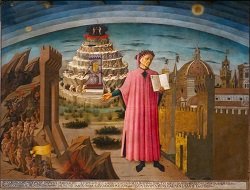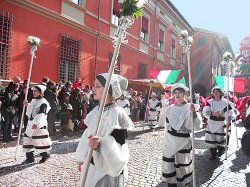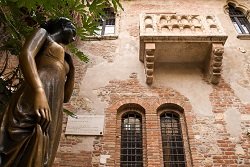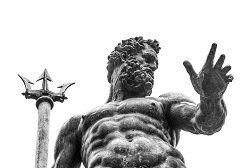Italian History 101 - The Roman Empire, Italian Renaissance, Fighting over Italy
Italy is a country with a very fascinating history – a big chunk of it the rise and fall of the mighty Roman Empire. Volumes of books have been written about that one topic alone. But if you would like just a short general overview over the history of Italy, then you have come to the right place. In this article, we will start with the rise of Rome. If you would like to know something about who the first people in Italy were, then you can check out the article about Italian genealogy.
The Roman Empire
Before Rome took over, there were different groups of people living in Italy – Greeks and Etruscans for example. Rome, however, did not think that people should just live independently. Rome conquered, first all parts of Italy, and then other countries. It was a process that stretched over a few centuries, and left plenty of marks all over Europe – not necessarily bad marks though. Where they went, the Romans brought their culture and their often superior knowledge and skills with them. Roads are just one example of the improvements the Romans brought to other European countries.
The Fall of the Roman Empire
During the third century AD, the Roman Empire started to crumble, and things that crumble eventually fall apart completely. The fall of the Roman Empire did not do the country Italy any good. For a while, there was no actual country as different city states in Italy simply did as they pleased. Neighbors fought against each other, and there was a lot of chaos. Some cities, however, did thrive during the so-called “Dark Ages”. Venice and Genoa are two good examples. Both of them were important centers of trade as they were busy port cities. Cities like these were beacons of light and wealth while other city-states in Italy had a very hard time getting by.
Italian Renaissance
The Italian Renaissance is one of the reasons why people love Italian art. It was not just a great time for art, but also for Italian thinkers and Italy as a whole. The renaissance is a word that can be translated as “rebirth”. It was the rebirth of classical ideas, people were going back to the ideals of ancient thinkers, believing that things were a lot better in the past. The result was that art and culture in Italy was once more flourishing, and from old ideas new ideas were born. Names like Michelangelo and Leonardo DaVinci play an important role in this time of Italy's history.
Fighting over Italy
Other countries envied what Italy had. They did not only want a share of it, they wanted to invade the country and take it over. Several countries (Spain, France, Austria) fought over dominance over Italy. Of course, Napoleon also had his fingers in the game until he was defeated. The Italians themselves were nothing more than bystanders. After all, they had no unified ruler, no sense of belonging together – and thus no chance to fight back.
Italy fights back – at last
In the 1840s, a man called Garibaldi changed all that. He began a movement to unite Italy and bring back the power over the Italian country to the Italian people. The Italians managed to get the Austrians out of their country. In 1871, Rome was the capital of Italy once more – and Italy was a nation to be reckoned with once more. The first king of the united Italy was Vittoria Emanuele II. If you ever visit Italy, you will see quite a few memorials to him and Garibaldi.
Italy after World War II
Of course, the two world wars also played an important role in Italy – but writing about this would also take up a considerable amount of pages. To keep it short: Italy sided with Germany during World War II and during 1943 was invaded by the allied forces. When the war finished, Italy turned from being a fascist state into a republic, and the king lost his throne. However, this was not the end of any kind of unrest in Italy. Italian politics have become even more complicated during the 20th and 21st century. Sometimes even the Italians themselves do not understand their own government. There have been terrorism problems, attacks on politicians, promises made, promises broken, treaties with other countries, problems with other countries, and plenty of scandals surrounding leaders of the country that gained worldwide attention.
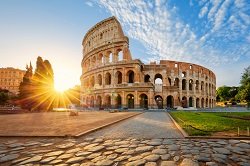

_(2).jpg)
